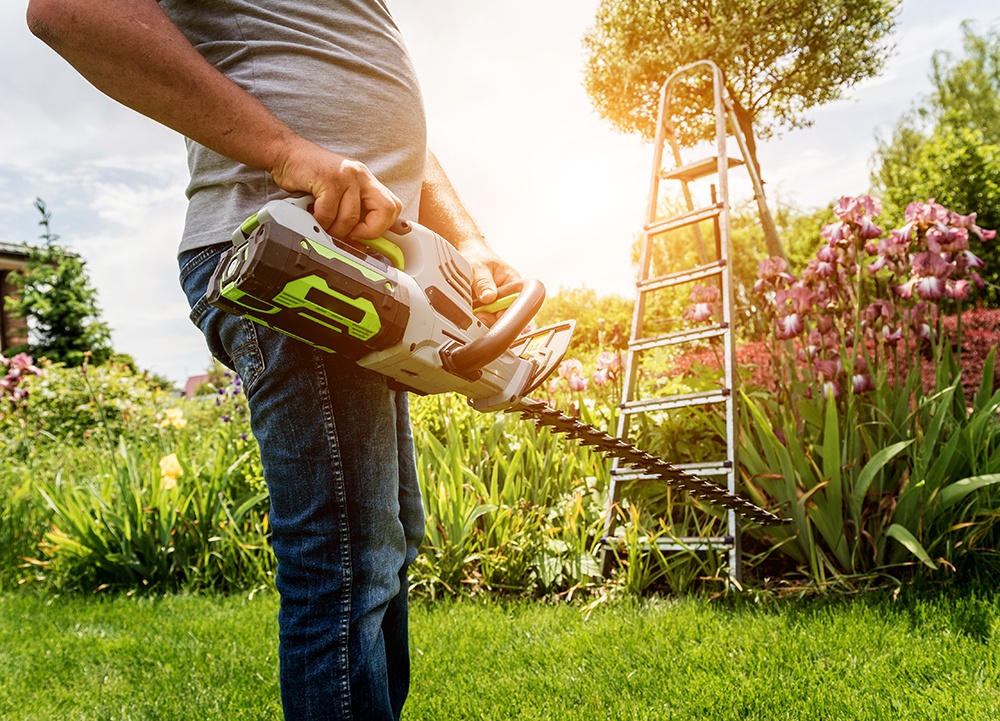Mid-Summer is the Best Time for Outdoor Maintenance
A lot of people are still working from home which gives many the opportunity to perform long overdue household maintenance chores. Now that summer is in full gear, it is the perfect time for tackling outdoor projects. Making sure your home has proper drainage around it, checking your gutters, and maintaining driveways and pathways should all be on your to-do list. Torrential downpours are common during the summer months and water is a home’s biggest enemy. Some preventative maintenance can save you a lot of time and money.
Grading
The land grading including driveways and paths should slant slightly away from the building, allowing water to flow away. Level driveways result in water pooling around your home. Driveways that slant towards your home mean that water is being pushed towards your garage and foundation, increasing the chance of water infiltration. You want to avoid any water accumulating near the foundation. Cracks in your foundation will let the water seep in and cause damage. The recommendation is a minimum slope of one inch per foot.
Garage drains
The drain on the floor of your garage is meant to control the flow of water and prevent pooling on the floor of your garage. This water can come from rain, your car, or even water used to clean your garage floor. Water puddles on the floor can be dangerous and can damage the floor of your garage so make sure that the drain is clear. Regular maintenance and cleaning will help ensure it functions properly.

Driveways and pathways
Regular maintenance of your driveway is best done in the heat of summer. Most driveways are made of asphalt, interlocking stones, or concrete. Each has its pros and cons and each type requires different maintenance. While asphalt is the least expensive, it is the least durable and repairing it can be difficult. Unistone is more durable, and easier to repair, but also more costly. The space between the stones allows for Concrete is the costliest and the most durable, but winters can be tough on concrete.
Whichever surface you choose, you should be sure to maintain the driveway regularly. Seal your driveway to protect it with a high-quality sealant made for that particular surface. Applying sealant too often can cause cracking and not applying it often enough shortens its life. Most of the pros recommend that a sealant be applied every 3 years so you can use that as a guide and summer is the best time. A sealant that is applied during hot weather will dry quicker. Driveway materials expand in the heat and will be more likely to absorb the sealant.

If your driveway slopes down towards the house, you should make sure that the drain at the bottom is regularly maintained. Any debris that may block it should be removed so that water can flow through it easily.
Gutters
If you didn’t do this in the Spring, check gutters for holes or leaks. Also, if you clean out any debris that may have accumulated, you’ll avoid blockages that make the rain spillover and saturate the ground below. Rain that spills over from gutters can damage the bricks of a home and fixing gutters is much less expensive than fixing bricks.
Downspouts
Your downspouts should be diverting water far away from your house. They can be extended if necessary, to make sure water is not pooling. Water accumulation near the house can cause basement leaks, one of the most common areas for water leakage.

Trees
While tress can provide curb appeal and much needed shade, they should be trimmed so that they are not too close to your home. The moisture from dripping tress can also cause damage to the roof and exterior of your home.
Many of the above tips involve making sure water is flowing away from your house, or not pooling. Homeowners who proactively take care of water problems before they become safety issues can reduce the cost of repairs and lessen the chance of problems such as mold. If you are planning on selling your home, a pre-inspection can alert you to potential issues before you sell your home. Mose Home Inspection believes you need to know everything about your home and that includes whether you have a water infiltration problem. As a customer, you can always contact us with questions, or visit our website.

